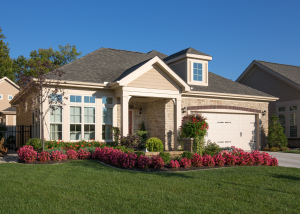
The rise of franchise homebuilding is still relatively new, but one company has made powerful strides through strong recruiting and a sound business model.
Epcon Communities, based in Dublin, Ohio, has carved itself a niche in franchise homebuilding for the active adult, 55-plus market, which the National Association of Home Builders (NAHB) regards as “one of the fastest-growing housing segments.” To date, Epcon has 350 communities in 28 states, including several in the state of Illinois, with sales of approximately 29,000 homes since its inception. In 2016, the company closed on 1,111 homes, making it the 45th largest builder, according to Builder magazine.
How does it work?
At Epcon, investors are equipped with a system on how to establish a community of homes, from site development and construction, to sales and marketing and even homeowners association guidelines.
“Our system allows people with various backgrounds to pick up those turnkey principles and scale their business and turn themselves into production home builders,” says Jad Buckman, business development manager.
Epcon has an initial franchise fee of $50,000, which allows investors to begin the land acquisition and development process. The overall investment varies, but the minimum capital requirement is roughly $500,000 of liquidity and a million-plus net worth.
Once the community has been established, franchisees then turn property management duties over to a property management company. “Something that differentiates us from other franchise opportunities is that once a builder gets going with us, they have the opportunity to continue down the road, or step back and reevaluate what they’re doing,” Buckman says.
Is it for me?
Prior to the recession, Epcon had seen investors range from bankers to advertisers. Now, real estate professionals, custom home builders and low-volume builders are getting in the game. No matter what their background, Buckman stresses the importance of small-business acumen.
“It comes down to financial wherewithal, to the drive, and a desire to leave a mark. Building homes and developing communities is a pretty unique thing, and I think you have to be a person who finds passion in that,” he says.
Since its inception, Epcon has not only invested in research and development over the changing needs of their homebuyer demographic, but also by fine-tuning the resources available for franchisees.
“As a company that’s been in business in franchising for more than 20 years, and building homes for more than 30, our systems are set up to reduce and minimize someone’s learning curve getting into a production homebuilding business,” Buckman says.
“I think the biggest asset that our franchise provides is the amount of expertise that our franchisees start with. They’re not on their own. They’re not having to design product and wondering if it’s going to sell. The investors get from us a tremendous reduction in risk,” adds Tim Rini, vice president.
Even if you have a network of support, Buckman stresses that franchising requires a true investment from the franchisee, both in time and money. But the benefits can be well worth it.
“The challenges are people who think that the franchise business runs itself because you have this big company behind you. The reality is that it’s still an extraordinary undertaking to launch a business and have it be successful, but it is definitely possible with the right attitude,” he says.